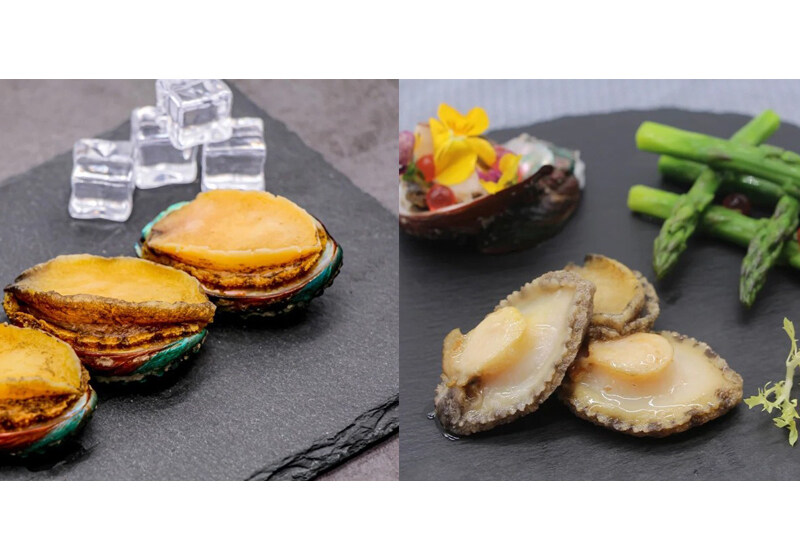Email cannot be empty
Password cannot be empty
Email format error
Email cannot be empty
Email already exists
6-20 characters(letters plus numbers only)
The password is inconsistent
Email format error
Email cannot be empty
Email does not exist
6-20 characters(letters plus numbers only)
The password is inconsistent


The Fascinating World of Frozen Abalone Meat: A Delicacy Worth Exploring
When we think about gourmet seafood, our minds might drift to lobsters, crabs, or oysters. However, one delicacy that often slips under the radar but is incredibly prized in many cultures around the world is abalone. Known for its delicate texture, unique flavor, and high nutritional value, abalone has earned its place as a luxury food item. Today, we will delve into the intriguing world of frozen abalone meat, uncovering how this frozen seafood treasure is sourced, processed, prepared, and why it has gained so much popularity among chefs and food lovers alike.
What is Abalone?
Abalone is a type of marine mollusk found in oceans worldwide, particularly in colder coastal waters. Unlike traditional shellfish that might have a soft, squishy texture, abalone has a firm, meaty consistency, and its flesh is often compared to that of scallops but with a unique richness and depth of flavor. The shell itself is smooth and iridescent, often showcasing beautiful colors that range from turquoise to deep purple.
The meat of the abalone is considered a delicacy in many cultures, especially in East Asia, where it is seen as a symbol of wealth and sophistication. This mollusk is often prepared in luxury dishes, served in fine dining restaurants, or enjoyed during special occasions. But because fresh abalone is so highly perishable, its frozen counterpart—frozen abalone meat—has emerged as a convenient and sustainable alternative, making it accessible to seafood lovers year-round.
The Appeal of Frozen Abalone Meat
In recent years, frozen abalone meat has surged in popularity, offering both practicality and flavor. But what makes frozen abalone so appealing?
Extended Shelf Life
Fresh abalone, like most seafood, has a very short shelf life. It needs to be consumed within a few days of being harvested, or it will spoil. By freezing abalone meat, it can be stored for several months, which makes it much easier to source and consume at any time. This is particularly useful for restaurants or home cooks who might not have easy access to fresh seafood.
Convenience Without Compromising Quality
While freezing does slightly alter the texture of any seafood, modern freezing methods—such as flash freezing—have improved the process considerably. Flash freezing preserves the meat’s natural flavors and texture, so frozen abalone is still close in quality to fresh. Thanks to these advancements, frozen abalone is now a common feature in high-end seafood dishes around the globe, providing a cost-effective yet luxurious option for consumers.
Year-Round Availability
One of the most significant advantages of frozen abalone meat is its year-round availability. In places where abalone may only be harvested during specific seasons, freezing allows consumers to enjoy this exquisite shellfish no matter the time of year. This ensures that frozen abalone meat is always available on menus, at grocery stores, and in international markets.
Sustainability
Due to overfishing, wild abalone populations have been threatened in some parts of the world. Freezing abalone allows for better management of the supply chain, especially when it comes from farmed abalone, which is often sustainably raised. Many companies that process frozen abalone prioritize eco-friendly practices, making it a more environmentally responsible option compared to its wild counterparts.
How is Frozen Abalone Meat Processed?
The process of preparing frozen abalone meat is quite fascinating. Once the mollusks are harvested, they are carefully cleaned, with the shells removed. The soft, tender flesh is then inspected for quality before being flash-frozen to lock in the flavor and nutrients. This freezing technique helps preserve the freshness of the meat, ensuring that it retains much of its original texture, taste, and nutritional value.
The frozen abalone is typically packaged in vacuum-sealed bags to prevent freezer burn and to maintain its quality during shipping and storage. Some vendors even sell pre-sliced abalone, which makes it easier for consumers to use it in recipes without having to go through the time-consuming process of slicing and tenderizing the meat.
In some cases, frozen abalone meat is treated with additional methods such as marinating or cooking before freezing to offer consumers even more convenience. This prepared frozen abalone meat can be used directly in dishes like stews, soups, and stir-fries, making it an incredibly versatile ingredient.

The Best Ways to Cook Frozen Abalone Meat
While frozen abalone meat may seem like a high-end ingredient reserved only for special occasions, it's surprisingly versatile and can be incorporated into everyday meals with ease. Let's explore some of the best ways to cook frozen abalone to bring out its best qualities.
Steamed Abalone
Steaming is one of the best ways to prepare frozen abalone because it helps preserve its natural sweetness and delicate texture. To steam frozen abalone, simply thaw the meat and place it in a steaming basket over boiling water. You can add seasonings like soy sauce, ginger, or garlic to enhance the flavor. Steam for about 5-7 minutes, and you'll have a dish that's both tender and flavorful.
Grilled Abalone
Grilling frozen abalone is another excellent way to enjoy its meaty texture. First, thaw the abalone and brush it with a bit of olive oil or butter. Season with salt, pepper, and any herbs you like—such as rosemary or thyme. Grill on medium heat for about 3-4 minutes per side until the surface is lightly charred and the meat is tender. Grilled abalone is often served with a drizzle of lemon juice or a sprinkle of chili flakes for an added kick.
Abalone Soup or Broth
In East Asian cuisine, abalone is often featured in nourishing soups and broths. Using frozen abalone meat to create a rich, flavorful broth is easy and rewarding. The frozen abalone can be simmered in water or broth along with other ingredients like mushrooms, garlic, and vegetables. The result is a delicate, yet savory soup that makes a perfect starter for a special meal.
Sautéed Abalone
If you're short on time but still want to enjoy the exquisite flavor of abalone, sautéing is a quick and simple method. Thaw the frozen abalone and slice it into thin rounds. Heat some oil or butter in a pan and sauté the abalone for a few minutes on each side until it turns golden brown. For extra flavor, add minced garlic, ginger, and a splash of soy sauce. Serve this dish as a starter or as part of a main course.
Abalone with Noodles
Abalone pairs wonderfully with noodles, especially in dishes like stir-fries or noodle soups. Whether you're making a hot broth-based soup or a dry stir-fry, frozen abalone can elevate the dish with its rich, meaty texture. Simply thaw and slice the abalone, then toss it with your choice of noodles, vegetables, and seasonings. The delicate taste of the abalone will balance out the bold flavors of the sauce.
Nutritional Benefits of Frozen Abalone Meat
Abalone is not just delicious—it is also incredibly nutritious. Here's why it makes a great addition to your diet:
High in Protein
Abalone is an excellent source of high-quality protein, which is essential for muscle growth, tissue repair, and overall body function. It contains all the essential amino acids your body needs, making it a complete protein source.
Rich in Vitamins and Minerals
Abalone meat is packed with essential vitamins and minerals, including vitamin B12, iron, selenium, and zinc. Vitamin B12 is crucial for nerve function and red blood cell production, while iron helps transport oxygen throughout the body. Selenium and zinc are both powerful antioxidants that help protect cells from damage.
Low in Fat
Abalone is low in fat, particularly unhealthy saturated fats, which makes it an ideal choice for those seeking to maintain a healthy diet. Its naturally low-fat content also helps keep the calorie count down, making it a great option for anyone aiming to eat lighter without sacrificing flavor.
Omega-3 Fatty Acids
Like many other seafood options, abalone is rich in omega-3 fatty acids, which are essential for brain health, heart health, and reducing inflammation. Regular consumption of omega-3 fatty acids has been linked to a decreased risk of chronic diseases like heart disease and stroke.
The Future of Frozen Abalone Meat
As the demand for frozen abalone meat grows, so too does the interest in sustainable farming practices and responsible sourcing. Many farms are now employing eco-friendly techniques to raise abalone in controlled environments, reducing the pressure on wild populations. This trend is crucial for the long-term sustainability of the abalone industry and for ensuring that future generations can continue to enjoy this luxurious seafood delicacy.
As frozen abalone continues to gain popularity, it is likely that we will see more innovative ways to prepare and enjoy it. Whether it's served in upscale restaurants or cooked in the comfort of our own homes, the future of frozen abalone meat looks bright, offering us a taste of the ocean in a convenient and sustainable form.
Conclusion
Frozen abalone meat is a truly unique delicacy that combines luxury, convenience, and sustainability. Whether you're a professional chef looking for a high-end ingredient or a home cook wanting to impress your friends and family with a delicious dish, frozen abalone is a fantastic choice. With its rich flavor, firm texture, and impressive nutritional profile, frozen abalone meat is much more than just a seafood treat—it's a gateway to the exciting world of gourmet cuisine. So the next time you find yourself at the seafood market or browsing through an online grocery store, consider picking up some frozen abalone meat to experiment with in your kitchen. Your taste buds will thank you!

